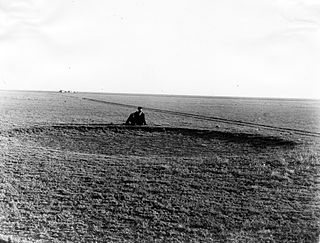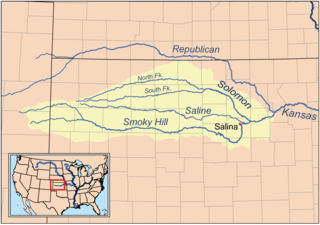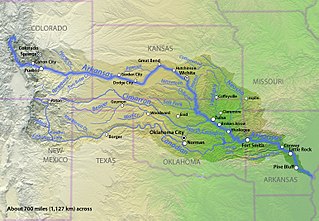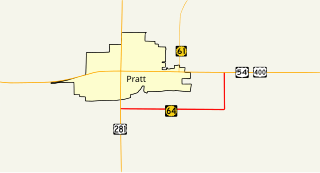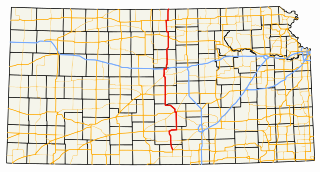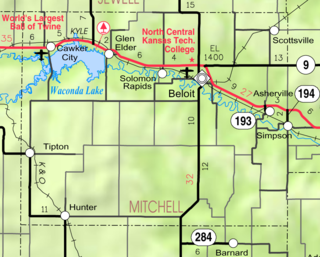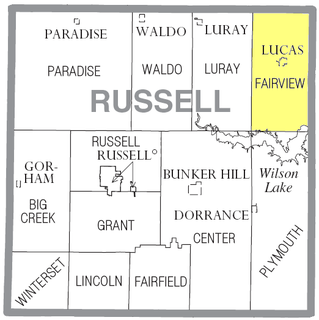| South Fork Ninnescah River | |
The South Fork Ninnescah River south of Murdock, Kansas (2006) | |
| Country | United States |
|---|---|
| State | Kansas |
| Source | |
| - location | Pratt County, Kansas |
| - elevation | 2,071 ft (631 m) |
| - coordinates | 37°36′20″N98°55′42″W / 37.60556°N 98.92833°W [1] |
| Mouth | Ninnescah River |
| - location | Sedgwick County, Kansas |
| - elevation | 1,302 ft (397 m) |
| - coordinates | 37°34′05″N97°42′19″W / 37.56806°N 97.70528°W Coordinates: 37°34′05″N97°42′19″W / 37.56806°N 97.70528°W [1] |
| Watersheds | South Fork Ninnescah- Ninnescah-Arkansas- Mississippi |
The South Fork Ninnescah River is a river in the central Great Plains of North America. Its entire length lies within the U.S. state of Kansas. It is a tributary of the Ninnescah River. [2]

A river is a natural flowing watercourse, usually freshwater, flowing towards an ocean, sea, lake or another river. In some cases a river flows into the ground and becomes dry at the end of its course without reaching another body of water. Small rivers can be referred to using names such as stream, creek, brook, rivulet, and rill. There are no official definitions for the generic term river as applied to geographic features, although in some countries or communities a stream is defined by its size. Many names for small rivers are specific to geographic location; examples are "run" in some parts of the United States, "burn" in Scotland and northeast England, and "beck" in northern England. Sometimes a river is defined as being larger than a creek, but not always: the language is vague.

The Great Plains is the broad expanse of flat land, much of it covered in prairie, steppe, and grassland, that lies west of the Mississippi River tallgrass prairie in the United States and east of the Rocky Mountains in the U.S. and Canada. It embraces:
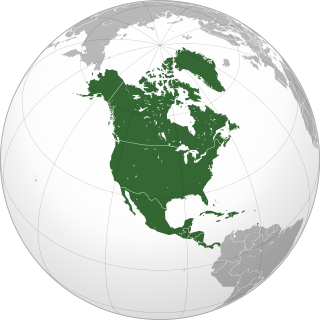
North America is a continent entirely within the Northern Hemisphere and almost all within the Western Hemisphere; it is also considered by some to be a northern subcontinent of the Americas. It is bordered to the north by the Arctic Ocean, to the east by the Atlantic Ocean, to the west and south by the Pacific Ocean, and to the southeast by South America and the Caribbean Sea.

